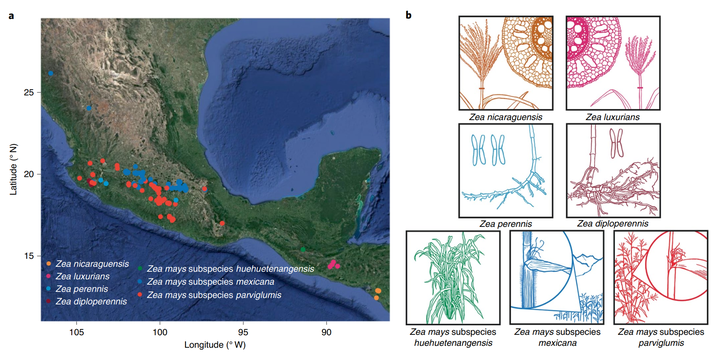 Image credit: Unsplash
Image credit: Unsplash
Abstract
Maize is a globally valuable commodity and one of the most extensively studied genetic model organisms. However, we know surprisingly little about the extent and potential utility of the genetic variation found in wild relatives of maize. Here, we characterize a high-density genomic variation map from 744 genomes encompassing maize and all wild taxa of the genus Zea, identifying over 70 million single-nucleotide polymorphisms. The variation map reveals evidence of selection within taxa displaying novel adaptations. We focus on adaptive alleles in highland teosinte and temperate maize, highlighting the key role of flowering-time-related pathways in their adaptation. To show the utility of variants in these data, we generate mutant alleles for two flowering-time candidate genes. This work provides an extensive sampling of the genetic diversity of Zea, resolving questions on evolution and identifying adaptive variants for direct use in modern breeding.